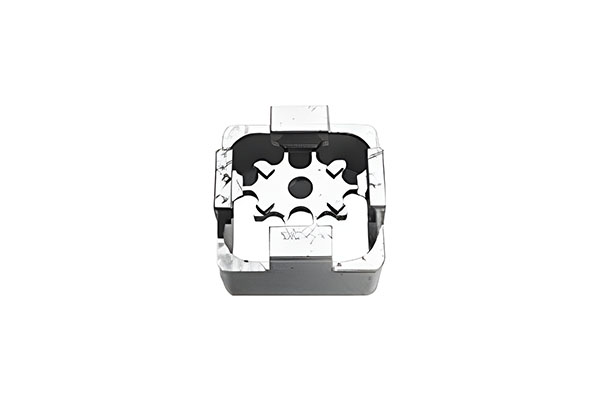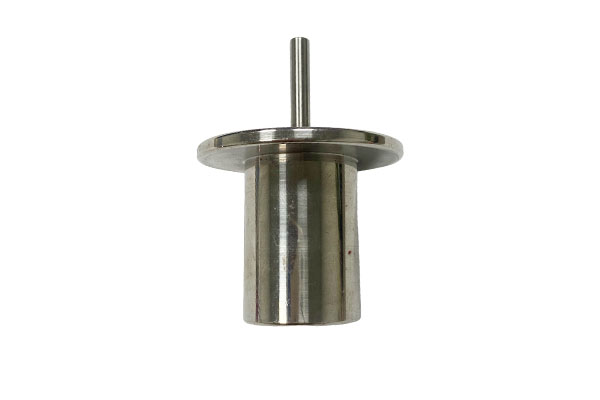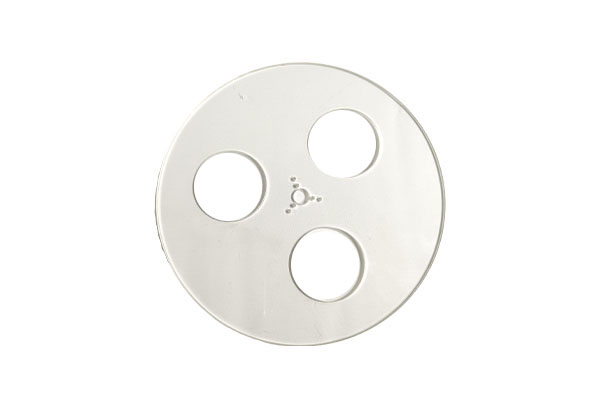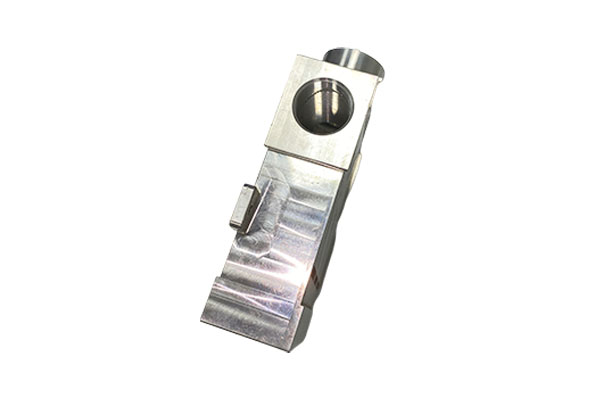How does CNC machining technology achieve high precision and high efficiency in the manufacturing of aluminum alloy non-standard parts?
Release Time : 2025-07-16
In today's rapidly developing high-tech manufacturing industry, CNC machining aluminum alloy CNC lathe hardware non-standard parts processing plays a vital role. This precision manufacturing technology is widely used in laser equipment, new energy photovoltaic equipment, solar energy equipment, lithium battery equipment, semiconductor equipment, 3C bonding equipment, die-cutting equipment, coating equipment, testing equipment, medical equipment and its automation, aviation manufacturing, robots and various intelligent equipment industries. It not only reflects the pursuit of precision and efficiency in modern industry, but also an important force to promote technological innovation and upgrading in various fields.
CNC machining aluminum alloy CNC lathe hardware non-standard parts processing, first of all, aluminum alloy has been widely used in many high-tech fields due to its excellent physical properties-lightweight, high strength, corrosion resistance, good conductivity, etc. CNC machining technology provides unprecedented manufacturing precision and flexibility for aluminum alloy parts. Through computer-aided design (CAD) and computer-aided manufacturing (CAM) software, engineers can accurately plan every processing step, from material selection to the final product molding, to ensure that each component can meet extremely high dimensional tolerance requirements. This allows even the most complex non-standard parts to be produced efficiently and accurately to meet specific application requirements.
Taking laser equipment as an example, its core components such as reflector brackets and optical path adjustment devices require extremely high surface flatness and dimensional accuracy to ensure the stable transmission and focusing effect of the laser beam. Aluminum alloy parts manufactured using CNC processing technology can not only meet these demanding technical indicators, but also reduce weight and improve the overall performance of the equipment by optimizing structural design. Similarly, in new energy photovoltaic equipment, the mechanical structure used to support photovoltaic panels or adjust angles also relies on CNC-processed aluminum alloy parts to achieve efficient energy conversion and stability.
Looking at lithium battery production equipment, it involves a large number of precision transmission mechanisms and sealing systems, which are crucial to ensuring the quality and safety of battery production. CNC-processed aluminum alloy non-standard parts are ideal for these key parts due to their good wear resistance and sealing performance. At the same time, in the semiconductor manufacturing process, the micro-processing requirements in the ultra-clean room environment are extremely high, and any slight error may cause the chip to fail. Therefore, aluminum alloy fixtures and test platforms manufactured using CNC technology have become the basis for ensuring the reliability of the production process with their excellent precision and consistency.
Not only that, with the intelligent development of medical equipment and automation systems, the requirements for parts are becoming increasingly stringent. Whether it is surgical instruments or diagnostic instruments, they need to have a high degree of accuracy and reliability. Aluminum alloy parts processed by CNC machining aluminum alloy CNC lathe hardware non-standard parts can reduce their own weight while ensuring strength, are easy to operate and easy to clean and disinfect, and are very suitable for the design and manufacture of medical devices. In addition, in the field of aerospace, every component of the aircraft must undergo strict screening and testing. CNC-processed aluminum alloy parts are widely used in fuselage frames, engine components and navigation systems due to their excellent mechanical properties and fatigue resistance.
It is worth noting that with the introduction of the concept of industry, intelligent manufacturing has become a key direction for the transformation and upgrading of the global manufacturing industry. As an important part of the intelligent manufacturing system, CNC machining technology is gradually evolving towards digitalization, networking and intelligence. For example, by introducing Internet of Things technology and big data analysis, the operating status of machine tools can be monitored in real time, maintenance cycles can be predicted, and downtime can be reduced; artificial intelligence algorithms can be used to optimize processing paths to further improve efficiency and quality. All of this is laying a solid foundation for the future development of the manufacturing industry.
In short, CNC machining aluminum alloy CNC lathe hardware non-standard parts processing is not only a technological innovation in the traditional manufacturing industry, but also a bridge connecting various high-tech industrial fields. It interprets the ultimate pursuit of modern industry with precise technology, and is also invisibly promoting human society towards a more intelligent and green direction.
CNC machining aluminum alloy CNC lathe hardware non-standard parts processing, first of all, aluminum alloy has been widely used in many high-tech fields due to its excellent physical properties-lightweight, high strength, corrosion resistance, good conductivity, etc. CNC machining technology provides unprecedented manufacturing precision and flexibility for aluminum alloy parts. Through computer-aided design (CAD) and computer-aided manufacturing (CAM) software, engineers can accurately plan every processing step, from material selection to the final product molding, to ensure that each component can meet extremely high dimensional tolerance requirements. This allows even the most complex non-standard parts to be produced efficiently and accurately to meet specific application requirements.
Taking laser equipment as an example, its core components such as reflector brackets and optical path adjustment devices require extremely high surface flatness and dimensional accuracy to ensure the stable transmission and focusing effect of the laser beam. Aluminum alloy parts manufactured using CNC processing technology can not only meet these demanding technical indicators, but also reduce weight and improve the overall performance of the equipment by optimizing structural design. Similarly, in new energy photovoltaic equipment, the mechanical structure used to support photovoltaic panels or adjust angles also relies on CNC-processed aluminum alloy parts to achieve efficient energy conversion and stability.
Looking at lithium battery production equipment, it involves a large number of precision transmission mechanisms and sealing systems, which are crucial to ensuring the quality and safety of battery production. CNC-processed aluminum alloy non-standard parts are ideal for these key parts due to their good wear resistance and sealing performance. At the same time, in the semiconductor manufacturing process, the micro-processing requirements in the ultra-clean room environment are extremely high, and any slight error may cause the chip to fail. Therefore, aluminum alloy fixtures and test platforms manufactured using CNC technology have become the basis for ensuring the reliability of the production process with their excellent precision and consistency.
Not only that, with the intelligent development of medical equipment and automation systems, the requirements for parts are becoming increasingly stringent. Whether it is surgical instruments or diagnostic instruments, they need to have a high degree of accuracy and reliability. Aluminum alloy parts processed by CNC machining aluminum alloy CNC lathe hardware non-standard parts can reduce their own weight while ensuring strength, are easy to operate and easy to clean and disinfect, and are very suitable for the design and manufacture of medical devices. In addition, in the field of aerospace, every component of the aircraft must undergo strict screening and testing. CNC-processed aluminum alloy parts are widely used in fuselage frames, engine components and navigation systems due to their excellent mechanical properties and fatigue resistance.
It is worth noting that with the introduction of the concept of industry, intelligent manufacturing has become a key direction for the transformation and upgrading of the global manufacturing industry. As an important part of the intelligent manufacturing system, CNC machining technology is gradually evolving towards digitalization, networking and intelligence. For example, by introducing Internet of Things technology and big data analysis, the operating status of machine tools can be monitored in real time, maintenance cycles can be predicted, and downtime can be reduced; artificial intelligence algorithms can be used to optimize processing paths to further improve efficiency and quality. All of this is laying a solid foundation for the future development of the manufacturing industry.
In short, CNC machining aluminum alloy CNC lathe hardware non-standard parts processing is not only a technological innovation in the traditional manufacturing industry, but also a bridge connecting various high-tech industrial fields. It interprets the ultimate pursuit of modern industry with precise technology, and is also invisibly promoting human society towards a more intelligent and green direction.







